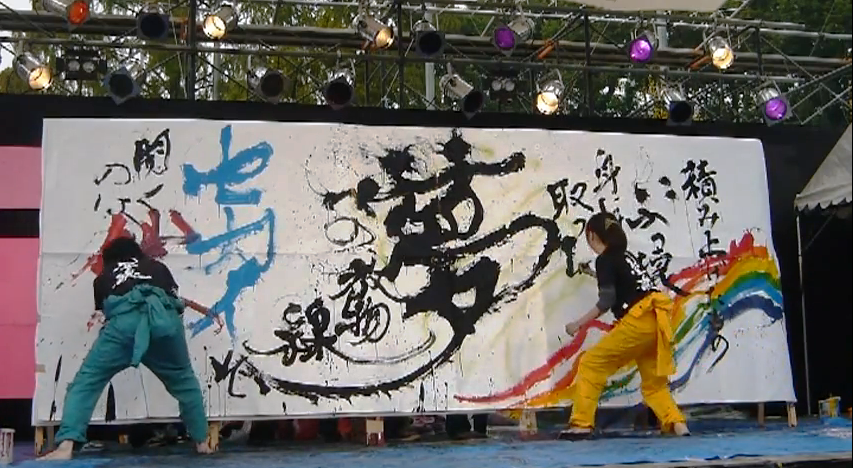EMBG stands for Eastern Mountain Boys and Girls, just one of the many groups known as karui music circles (lit. ‘light,’ meaning amateur, or recreational) that gather weekly at the Kyoto University campus. Ever since I applied for KCJS I had wanted to do something of this sort, because I was interested in experiencing a young people’s rock and roll culture in Japan. After searching for a few weeks to find a circle that would allow me to participate, a friend managed to talk to a member of an associated Kyoto University karui music circle, which eventually resulted in me and Jerome (my classmate, friend, and partner in rock and roll) being graciously allowed to join.
The presence of these types of clubs at Japanese universities is a really great thing, and although my home institution is quite small (around 1,500 undergraduates), I imagine that similar organizations are quite rare even within large American universities. It has been neat not only to be a part of something fun and entertaining, but also to encounter a new type of club that I had previously been unfamiliar with. However, what has struck me the most is all about the quantity of these types of groups and the members within them, accounting for a truly robust group of circles focusing on the recreational act of forming various bands with friends and rocking out in a variety of genres.
The circles at Kyoto University all meet at a typical classroom building known as yon-kyou, which is transformed in the early evenings of meeting days from a building of classrooms to a building of practice and performance rooms. When approaching the heart of the campus, one can hear the muffled fuzz and rumble of instruments collectively sounding from various rooms in the building. Vast lines of bicycles all but cover the ground of the building’s large concrete lot. As the sun sets, cycling students gradually pour in, and after all the equipment has been loaded into each club’s assigned meeting space (usually gear transported from a rented storing space and unloaded from the back of a club van), the activities commence. At any given time, there might be sound emanating from the building’s brick walls as a few groups of people chat outside the entrance. It is apparent that this place, much like the local venues and bars in American cities, is more than a simply a place to play music or listen to music. It is a place to relax, hang out with friends, and bond over music as a common activity.
The atmosphere at EMBG has been welcoming and relaxed. While by no means disorganized or uncoordinated, EMBG is quite flexible in its scheduling and sessions, I have found. More or less, the most important part of these meetings is simply showing up. Members see each other, they unload gear together, they chat with each other, they listen and play music together. Depending on whether or not there is a specific band scheduled to perform for the rest of the circle’s enjoyment (called a raibu; ‘live’), a meeting can more or less function as a collective practice room. On a typical day, friends will sit or stand around, and if not playing an instrument of their own, the are yelling to chat over the cacophony of the collective jam. I have even had my own opportunity to try my hand at playing drums with a third year law student who was able to summon a few riffs on his guitar that I could play along to. We messed around with songs by two piece bands like The White Stripes and Japandroids. We were planning to perform at the November Festival, Kyoto University’s own gakuensai, but unfortunately we both became too busy to follow through on this. Nonetheless, I was able to attend a portion of the NF performance, and it was a blast. Around twenty bands performed, and that was only for this specific circle.
But it’s more than just music, of course. I’ve made friends here, with whom I’ll often go to eat after meetings are over. People talk and often share ideas about music, and one can tell that this is what essentially brings them closer, but yet there is much more here. Ultimately, it is music formed through fellowship, and fellowship formed through music. And I feel thrilled to have taken part.

